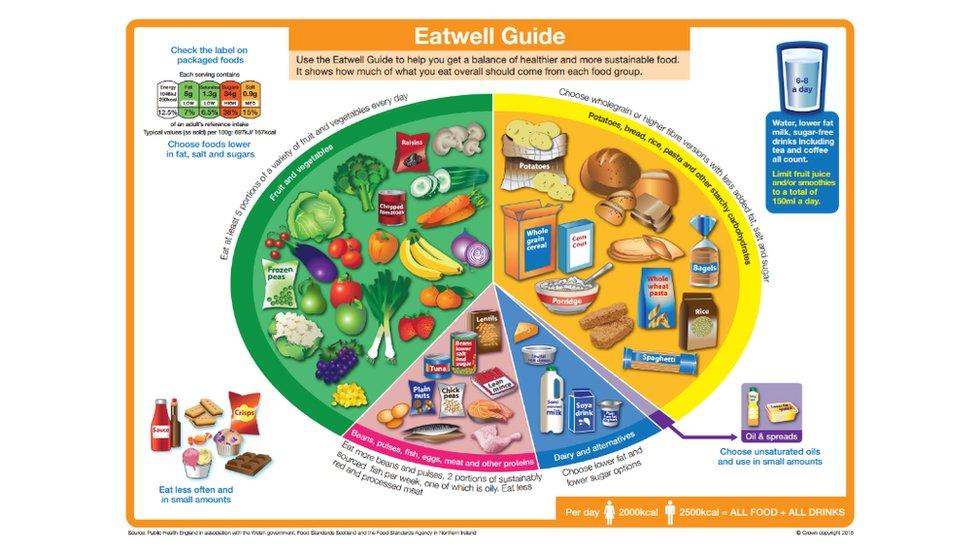Scots urged to eat 'more fibre and less sugar' to combat disease
- Published

Guidelines on an ideal Scottish diet have urged people people to eat more fibre and less sugar.
The new goals recommend adults eat 30g of fibre a day - a 25% rise on previous levels.
And they suggest eating no more than of 5% added or natural sugars per day - roughly six teaspoons - a cut of 50%.
The changes have been based on evidence and advice from the Scientific Advisory Committee on Nutrition (SACN) and Food Standards Scotland.
Fibre helps prevent heart disease, diabetes and weight gain - as well as improving digestive health - and can reduce the risk of some cancers.

The new Eatwell Guide outlines the recommended balance of food groups
The "free sugar" guidelines refer to sugars added to food, or those naturally occurring in fruit juices, honey and syrups.
Eating too much sugar can lead to health problems including obesity and diabetes.
There is also a new goal that carbohydrates should make up around 50% of a person's total energy intake.
Minister for Public Health Maureen Watt said: "Despite some improvements in recent years, obesity levels are still too high in Scotland.
"Also, in common with most of western Europe, we have seen continued increases in the levels of Type 2 diabetes.
"It's clear that, as a nation, we need to improve our diet and think more about reducing our sugar intake and eating more fibre."
Earlier this week, Food Standards Scotland launched the new Eatwell Guide,, external which replaces the previous 'eatwell plate', and shows people in Scotland how they can achieve a healthy balanced diet.
In Wednesday's Budget, Chancellor George Osborne unveiled a new sugary drinks tax - to be in operation by 2018 - aimed at fighting childhood obesity.